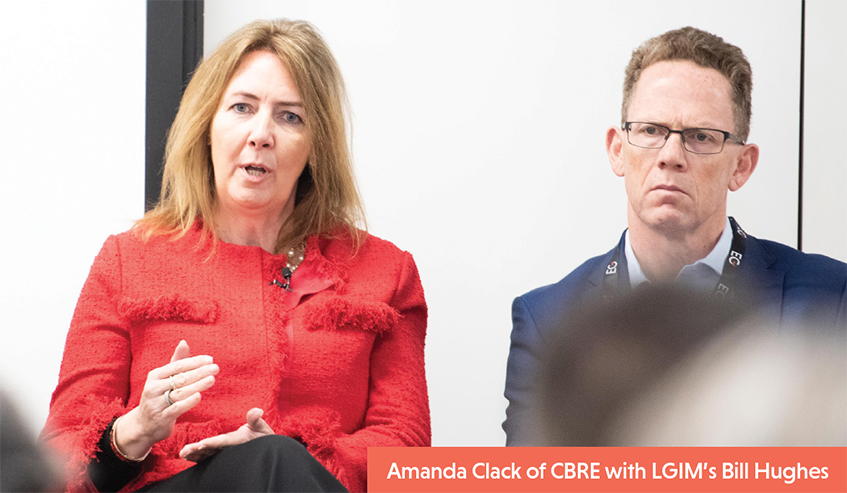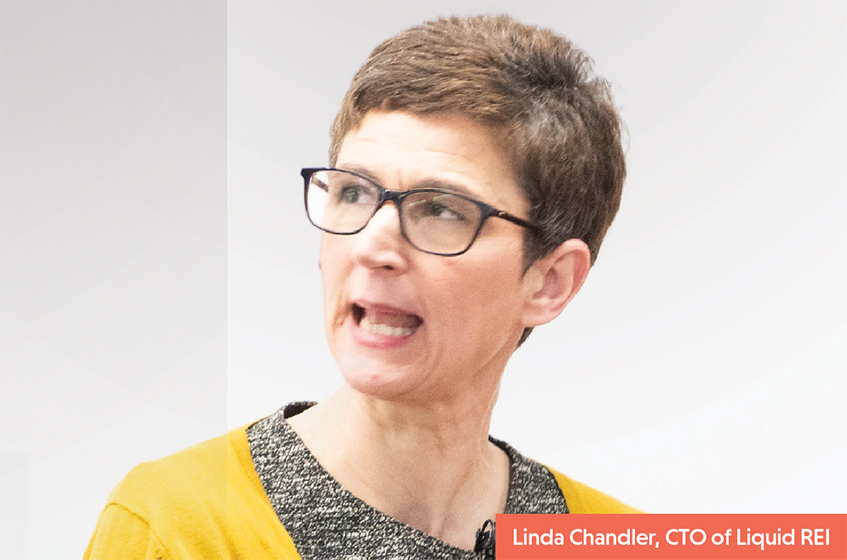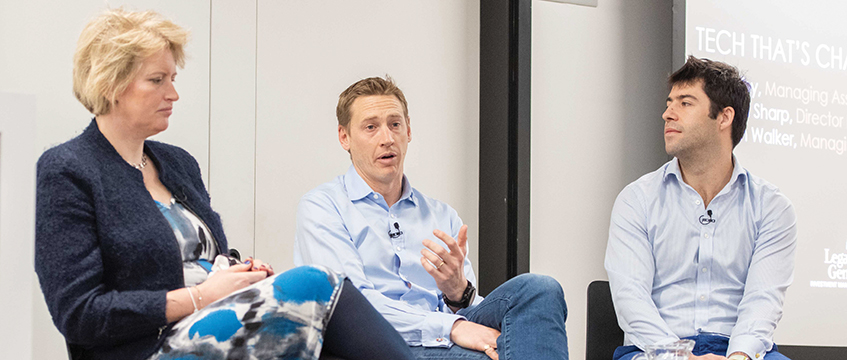People, cities and technology. How those three things work together is the future of real estate and were the key elements of much lively debate at EG’s first Tech Live event of 2019, staged during MIPIM.
When it comes to thinking about smart cities and the future of the built environment, it would be easy to assume that connectivity starts with the technology, but there is a much more important element to consider.
Each and every city around the world is built on and thrives off its people. It is people that make cities connected, and the most successful cities of the future will be the ones that not only evolve to keep up with technological advances but are delivering what the people want and need.
Benign dictatorship
For Duncan Walker, managing director of Skyports, a business that is seeking to enable passenger drones to be part of our cities’ infrastructure, the best way to enable cities to use tech to serve the people is to operate under a benign dictatorship.
“What I have found in my business over the last 18 months is that dictatorships are fantastic,” said Walker to a surprised audience. “They are a brilliant way to enable tech. There are plenty of things that aren’t great about dictatorships, but what they can do is push change through very, very quickly and be at the leading edge of some really innovative stuff.”
Walker pointed to Singapore and Dubai as places that are at the forefront of emerging technology that is bringing in investment and human capital and leaving London and other Western cities lagging behind.
Miranda Sharp, director of innovation at Ordnance Survey, came to the defence of London. “We don’t, sadly, live in a benign dictatorship, but we do live in a city which has 33 independent boroughs, which makes doing anything on a cross-London basis very difficult.”

The need for change
“There is definitely a need for change, particularly in cities,” added Mishcon de Reya managing associate Nick Kirby. “Consumers are expecting services to be delivered better, faster, more efficiently because of all the technology that is available to them now.
“We are having to change the way we deliver services because the consumers we are dealing with want services delivered in a different way.
“If we don’t change then they will get disappointed and move on to someone who is able to provide services in that way. Cities are quite similar. We are competing with other cities, and the better we are at providing our services more efficiently, the more popular we will be, driving growth.
“We need to engage with our population more than we do at the moment,” he added. “We need to make sure they are all open to change as well. It is about having innovation hubs where new ideas can be tested out, where new ideas can be put forward by the population.”
Ordnance Survey’s Sharp agreed. “Unless we think about data and technology in a holistic way and the city as a place rather than as individual consumers connected by need, we will have lost the opportunity that the smart city bandwagon has offered us,” she said.

People-centric approach
That need to put people at the centre of what is best for a city and how it is developed and evolved was echoed across the event.
CBRE’s head of strategic consulting, Amanda Clack, said: “What you have to do is actually think about people centricity and how people are going to interact with places. We need to think about what people want from cities. The easiest thing to do is densify our cities, and if we keep adding buildings and not thinking about places and spaces in between those buildings they become places that people don’t want to be.”
For Linda Chandler, chief technology officer at Liquid REI, the definition of “smart city” is a city that thinks about an individual’s lifestyle, not their need for tech.
“When we look to what people have always wanted from a city, it is quality of life, health, education and jobs,” she said. “I think those things have persisted across the decades and centuries, and it’s wrong to place technology at the focus. Place people at the focus and use technology as the enabler.”
Overall, the experts at Tech Live were confident that the industry – even without a benign dictatorship – was changing to enable the development of smart cities and was moving to put people at the centre of them while utilising technology and data to deliver.
Click here to watch Tech Live in full.
L&G’s top tips for tech investment
“I think investing in the infrastructure around electric vehicles will be important,” said Legal & General Investment Management’s head of real assets, Bill Hughes.
“That’s just an obvious thing that we can see coming. Only about 1% of cars are electric at the moment, but the projections will show you that it is a piece of infrastructure that really, really matters.
“We have already invested in WiredScore, a digital connectivity rating scheme for office buildings, which I think is an important thing that will expand to the residential sector and geographically. We’ve got a couple of other ideas about data collection, but there is no point collecting data unless you’re going to use it to affect decisions.”
Tech Live in five key quotes
Duncan Walker, managing director, Skyports
“The challenge is how you utilise technology to make time. In reality, time is the only scarce resource. People in this room may think you need more money. You don’t need more money, you need more time.”
“Dictatorships are fantastic. They are a brilliant way to enable tech.”
Miranda Sharp, director of innovation, Ordnance Survey
“Technology tends to mature a bit like fish, whereas the data it produces is often the fine wine, which will mature nicely.”
Linda Chandler, CTO, Liquid REI
“It is wrong to place technology at the focus. Place people at the focus and use technology as the enabler.”
Bill Hughes, head of real assets, LGIM
“I think there is much less tolerance for people who are trying to maximise the amount of money they make in a short time frame and for themselves versus doing the right thing, creating something that has got some enduring value that is going to make positive returns for whatever the capital is.”
The panellists
- Nick Kirby, managing associate, Mishcon de Reya
- Miranda Sharp, director of innovation, Ordnance Survey
- Duncan Walker, managing director, Skyports
- Linda Chandler, CTO, Liquid REI
- Amanda Clack, head of strategic consulting, CBRE
- Bill Hughes, head of real assets, LGIM
- Mark Jenkinson, head of cities, Siemens
- Rebecca Lovelace, founder & chief dot joiner, Building People
- Chaired by: Emily Wright, tech editor, EG
In partnership with

Knowledge partner

To send feedback, e-mail samantha.mcclary@egi.co.uk or tweet @samanthamcclary or @estatesgazette











